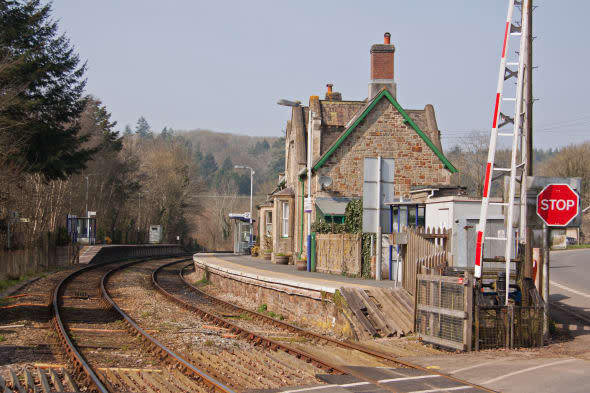Rail ticket prices 'treble' since privatisation

Independent analysis has revealed that some rail fares have almost trebled since privatisation, twenty years ago. The most shocking fare rise came from First Great Western, where a peak walk-on return fare between Bristol and London has shot up 246% to £197 since 1995. In the same time inflation has increased general prices just 77%
The research was done by Barry Doe, an independent expert, for the Transport Salaried Staff Association. He assessed prices on the ten most popular routes, and discovered that all of them had vastly outpaced inflation - rising between 141% and 246%.
Union general secretary Manuel Cortes said: "The private rail industry has taken all the gain while passengers have suffered all the pain." He is calling for a one year fares freeze from next January, adding: "We want to end this annual persecution of passengers which started after privatisation."
The top ten rises (anytime return fares to London) between 1995 and 2015
Bristol 246% to £197
Manchester 243% to £329
Liverpool 232% to £309
Cardiff 216% to £218
Birmingham 211% to £168
Glasgow 178% to £361
Nottingham 172% to £160.50
Leeds 159% to £249
Newcastle 148% to £308
Edinburgh 141% to £313
%VIRTUAL-ArticleSidebar-travel-guide%
Defence
The train companies argue that these are the prices paid when people buy on the day and want the flexibility to return at any time. They say that the vast majority of people buy their tickets in advance, and so pay less than this to travel - or have a season ticket, which costs a fraction of the price.
The Rail Delivery Group has also taken exception to the figures. It said in a statement: "The TSSA's figures are misleading in the extreme focussing only on the most expensive fares. The average price paid for a single journey was £5.17 last year, compared to £5.14 in real terms in the mid 1990s. This helps to explain why passenger numbers have almost doubled over the same period, contributing to a fivefold increase in money going back to government to reinvest in a better railway."
Huge costs
However, you cannot argue with the fares themselves. The AA calculates that pence per mile for most cars is between 19p and 25p. Assuming you pay the top end of that, a return trip from London to Bristol (factoring in fuel, tyres, service labour costs, replacement parts, parking and tolls) would cost you around £60. That's less than a third of the price of the train.
In fact, there are a number of cheap flights that would get you far further for less. EasyJet and Ryanair could get you a short break in Berlin for less than £90 at the beginning of February, while Monarch could get you a return trip to Rome for £133, and EasyJet could fly you to Switzerland and back for £83.
It's hard to find many forms of transport that don't compare favourably to taking the train. It begs the question of whether the rail companies have a leg to stand on when defending these rises.
But what do you think? Let us know in the comments.
Train fares on AOL Money
Start your train journey in Wales - and pay half the price
Rip-off Britain: 10 astonishingly bad deals
Ten ways to cut the cost of your commute




